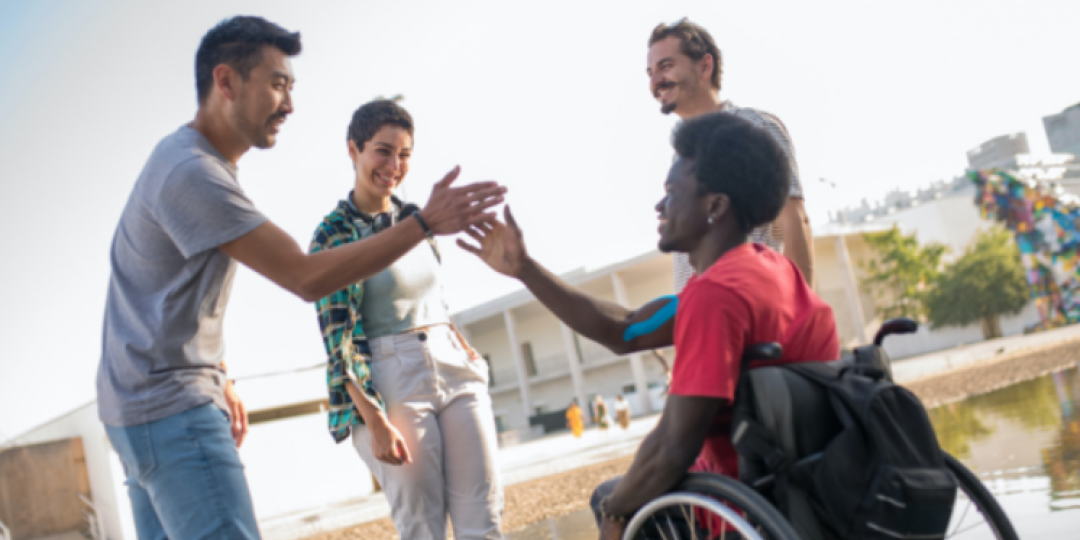South Africa’s tourism industry is largely unaware of the accessible tourism offerings available in the country and how to market them.
This became apparent following a recent Tourism Update poll where the majority (41%) of readers said they were ‘unsure’ whether access for people with disabilities had improved over the last year. A big section (35%) said access had not improved, whereas only 24% said it had improved.
“Tourism has the power to bridge gaps, foster understanding, and create unforgettable memories. However, the full potential of tourism can only be realised when it embraces the principles of responsible travel, ensuring universal access for all individuals, regardless of their abilities,” said Shama Nathoo, Founding Member and Managing Director of the Universal Accessibility Hub (UA Hub), and former Board Member of the Tourism Grading Council of South Africa.
UA Hub
UA Hub, founded in 2017, intends to act as a catalyst in promoting inclusive, accessible and sustainable development in the tourism sector.
Its mission statement is “to harness the power of joint initiatives with key stakeholders for the inclusion of persons with disability as valued and recognised citizens”.
The organisation offers services such as UA audits and compliance assistance; disability awareness through sensitivity training, workshops, events and expos; as well as inclusivity through app development and website tools.
Nathoo believes a bigger accessible tourism industry could be achieved through public-private partnerships.
“The strong message from the National Tourism Minister, Patricia de Lille, at Africa's Travel Indaba and at the breakfast session with Women in Tourism was: ‘We have enough policies, let's focus on implementation’. I support the Minister and through public-private partnerships this can be delivered.
“The time is now that we would like to hear about, see and experience the broader implementation of tourism experiences promoting, strengthening and implementing access to inclusive and memorable visitor experiences highlighting that we 'leave no one behind',” said Nathoo.
Benefits of accessible tourism
“The benefit of universal access creates opportunities for individuals with disabilities, older adults, families with young children, and other marginalised groups to explore the world and enjoy enriching travel experiences.
“It enables them to appreciate diverse cultures, heritage sites, and natural wonders, enhancing their overall well-being and quality of life. Additionally, universal access benefits tourism destinations by tapping into new markets, increasing visitor numbers, and fostering sustainable economic growth,” said Nathoo.
Nathoo pointed out that tourism establishments should consider the following if they want to provide accessible tourism offerings:
- Physical accessibility: This dimension emphasises the importance of creating infrastructure and facilities that are accessible to individuals with mobility challenges. It includes designing barrier-free accommodations, transportation, attractions, and public spaces.
- Communication and information accessibility: Providing accessible information in various formats, such as braille, large print, and audio descriptions, ensures that individuals with visual or hearing impairments can access essential details about destinations, attractions, and services.
- Service provision: Training tourism professionals to understand and cater for the needs of diverse individuals is crucial. Service providers should have the knowledge and skills to offer personalised assistance, adapt their services, and provide a welcoming environment.
- Training and awareness: Building awareness among stakeholders, including tourism businesses, local communities, and travellers, is vital to promote inclusivity. Training programmes can educate and sensitise individuals about the diverse needs of travellers and encourage best practices in universal access.
- Policy and legislation: Governments play a crucial role in driving universal access by implementing policies and legislation that mandate inclusive practices in tourism. This includes enforcing accessibility standards, promoting compliance, and offering incentives to businesses that prioritise universal access.























